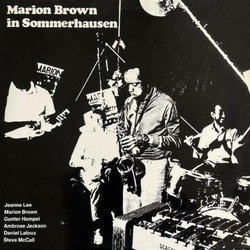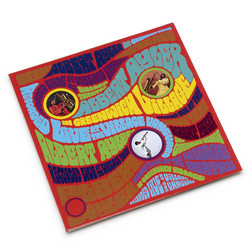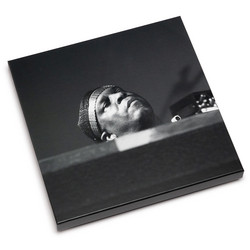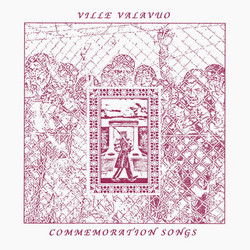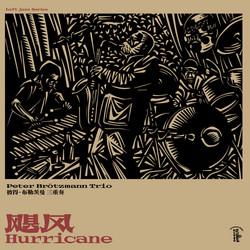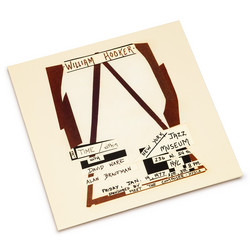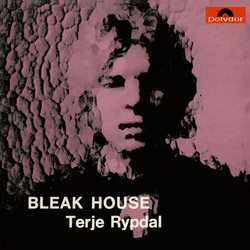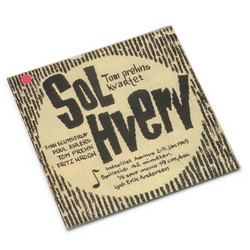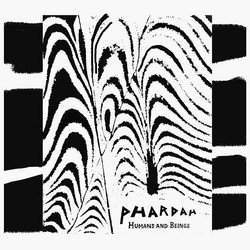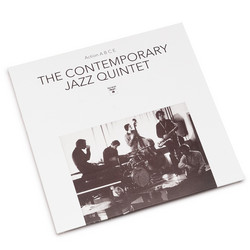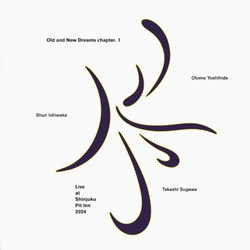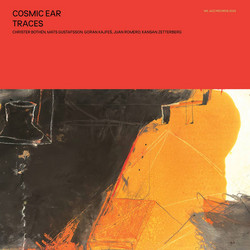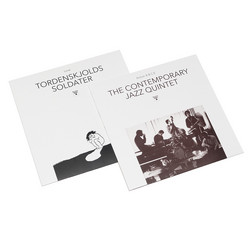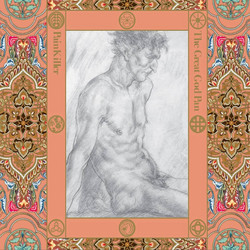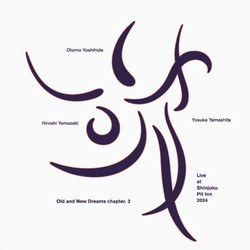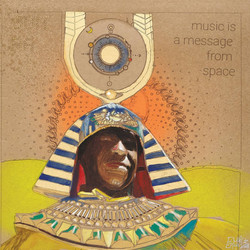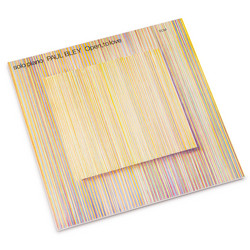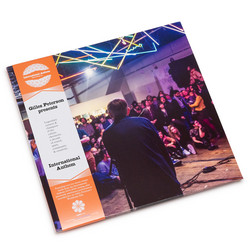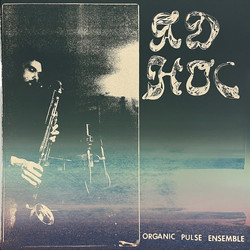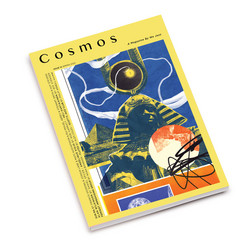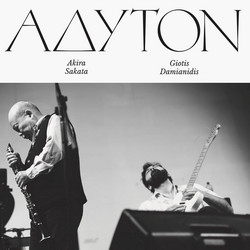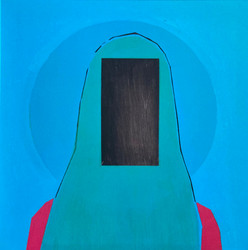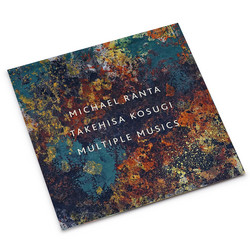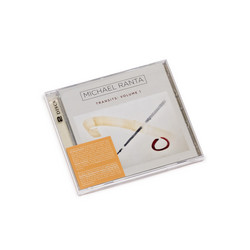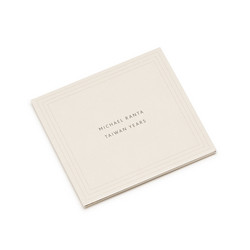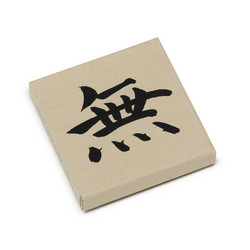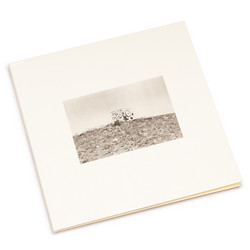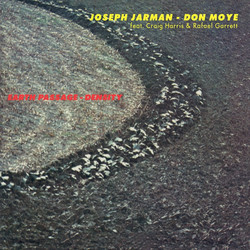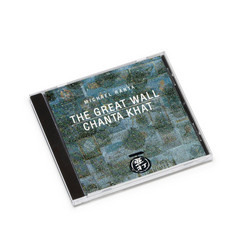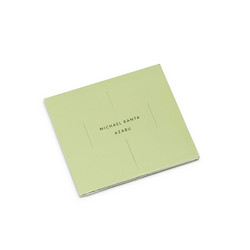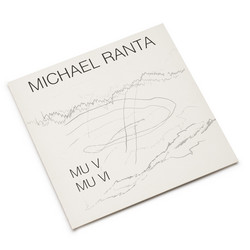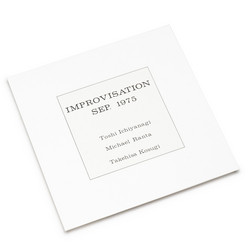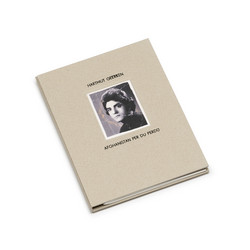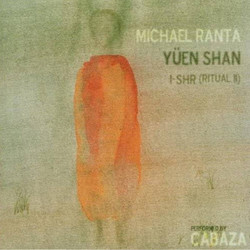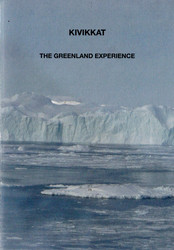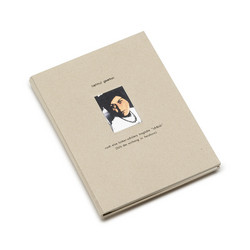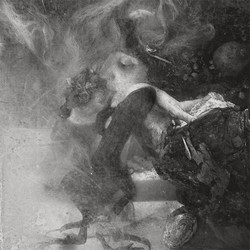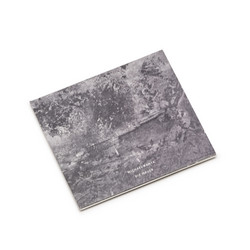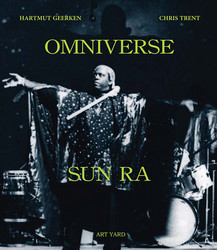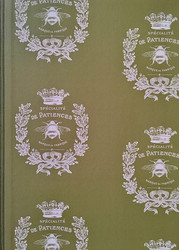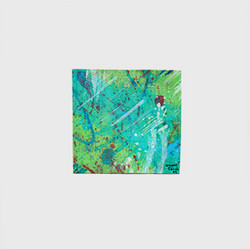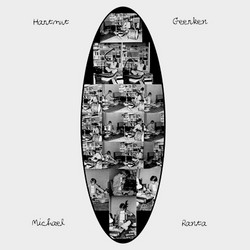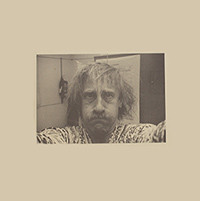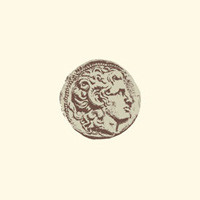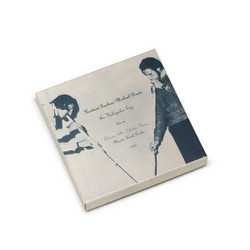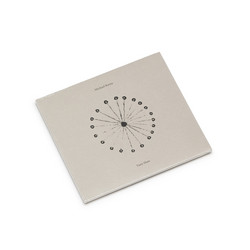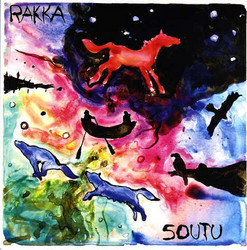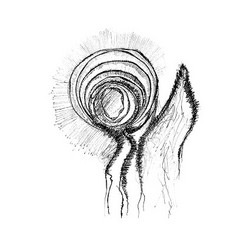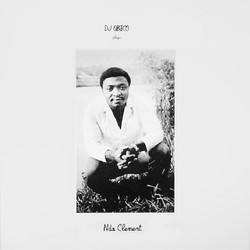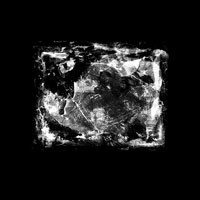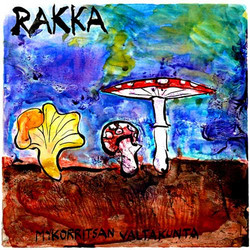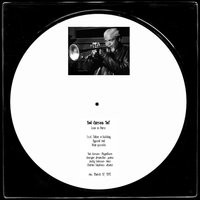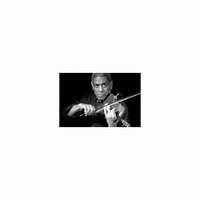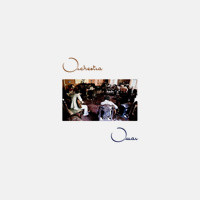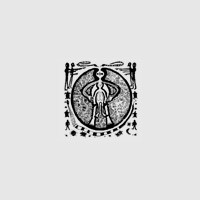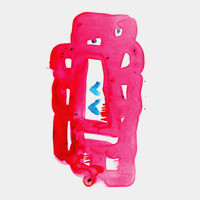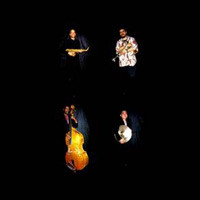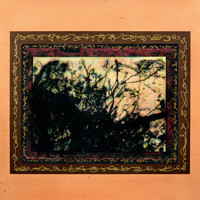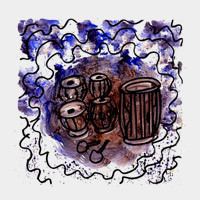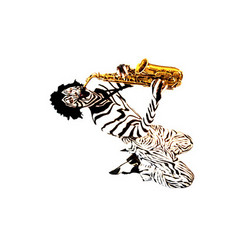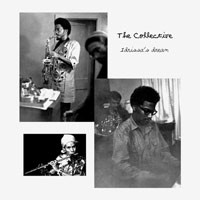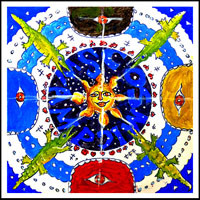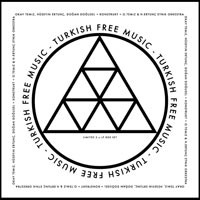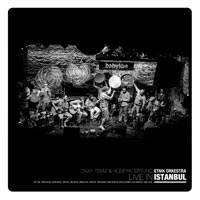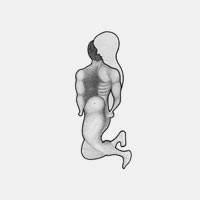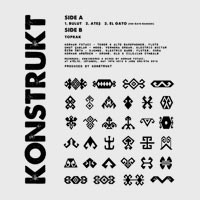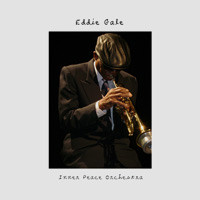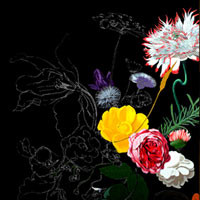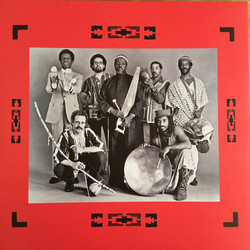Don Moye, Hartmut Geerken, Michael Ranta
West Africa Tour (Sierra Leone, Liberia & Guinea), April 1985
special box in 26 copies, made in high quality leather various African objects/artworks from various African tribes, stunning booklet with many rare photos (30) of the Tour (mostly color and b&w) cola nuts (to break the colanut with somebody african saying, which means to make friendship) an extra one-sided LP (I side) on gold and gold/green wax, - ALL recordings available here for the 1st time! "One of music's most amazing powers is its ability to tell a story. In the case of The African Tapes, three musicians lived an incredible story and transformed the experience into a narrative of pure sound. Lengthy negotiations with various foreign ministries and embassies gave fruit in 1985 as the trio of Moye, Tchicai, and Geerken unlocked the doors to performance in West Africa. Starting out in Freetown, these musicians traveled across Sierra Leone, Guinea, and Liberia as cultural ambassadors, playing for local audiences which had often never experienced modern jazz. The locals participated eagerly during these performances—with dance, clapping, and instrumental collaboration. The two-disc set The African Tapes documents the resulting diversity of instruments, styles, and moods.
It's essential to note up front that the roots of jazz lie in the African-American experience, and most of the slaves imported to the New World had their origins in West Africa. It's equally important to consider that when the descendants of this population returned to Africa after emancipation, they concentrated in Liberia and neighboring countries. As a result, modern-day West Africa retains all sorts of connections, new and old, with jazz music.
The members of this particular improvising trio include Famadou Don Moye, a neo-tribalist percussionist (famous for his work with the Art Ensemble of Chicago); John Tchicai, a half-Congolese Danish reedist who emigrated to the U.S. in the '60s (notable for his work with the New York Art Quartet); and Hartmut Geerken, a multi-instrumentalist with a truly global concept of sound (and whose book, motte motte motte, describes the experience documented in aural form on The African Tapes). Before their first stop in Freetown, these three musicians had never played together. Their immediate cohesion testifies convincingly about their musicality—in terms of playing as well as listening. Subsequent recorded documentation of this group appears on Cassava Balls (GYNJ/Leo).
Instead of bringing jazz to the people of West Africa, the Moye/Tchicai/Geerken trio meet them halfway. Their performances in Sierra Leone are accompanied by a drum ensemble (Milo Jazz) from the National Dance Troupe, as well as an all- woman drum quartet (Bundu Drum Group). Check out the elegant, dense polyrhythms of "Yabom Kamara" for evidence of the latter. In Liberia, they are joined by the trumpet/bass duo of Melwin Reeves and Habib Tamba (particularly evident sculpting the groove on "Xongly plus Monro"). When the trio is left to its own devices, it covers an amazing range of tone and texture—from underwater gong bellows, to elaboration of simple melodies, to cranked-up Ayleresque howling.
Audience participation manifests itself throughout The African Tapes. During one particularly ethereal performance in a bauxite mine in Guinea ("Reveiller le Belleville"), trance-like sounds on the Tibetan horn, conch, and tenor saxophone elicit striking fear and foreboding from listeners. (It turns out this music was uncomfortably close to the traditional ritual sounds of a local religious group, and the trio had to switch over to a different tune in order to keep the audience from scattering.) Other tracks reveal obvious audience participation, as well as background noise and chatter. For being essentially a series of field recordings, The African Tapes offers surprisingly high sonic fidelity. And the cultural, linguistic, and musical richness of these two discs stands unparalleled in the history of improvised music." (AllAboutJazz)
hand-made by
Nuxakaan
with:
high quality leather
various African objects/artworks from various African tribes
booklet with many rare photos (30) of the Tour (mostly color and b&w)
cola nuts (to break the colanut with somebody african saying, which means to make friendship)
an extra one-sided LP (I side) on gold and gold/green wax
I1 rec. April 21, 1985 Town Hall, Boké, Guinea
I2 rec. April 26, 1985 Town Hall, Rokupr, Sierra Leone
Comes with a booklet which includes:
- A legendary Tour through West Africa by Sigrid Hauff (Geerken's wife)
- Races places faces & asses by Geerken & Moyé (poem)
- 3 x Africa and back by Bert Noglik (renowed jazz critic; translated by Olaf Geerken and Samantha Disbray)
- Through the Mano River Union States by Christian Nakonz (ex Sierra Leone's German Ambassador)
- Many rare photos (30) of the Tour (b&w)
- Tour plan
Recorded by Sigrid Hauff on a WM-D6C professional sony walkman with TDK MA-R90 metal alloy cassettes.
John Tchicai
tenor saxophone, flute, voice, perc, whistles
Hartmut Geerken
perc, piano, prep. piano, piano strings, voice, flutes, whistles, balloons, tibetan boo-chals, tibetan horn, waterphone, agogo, indonesian angklung, watergong, tibetan chinkas, maracas, bells, singing tube
Famoudou Don Moyé
drums, perc, voice, conche, whistles, agogo, segbureh
guest musicians:
Milo Jazz- percussions
Kojo Samuels- elephant tusk horn, tenor sax
Melvin Reeves- trumpet
Habib Tamba- electric bass
booklet content:
A legendary Tour through West Africa by Sigrid Hauff (Geerken's wife)
Races places faces & asses by Geerken & Moyé (poem)
3 x Africa and back by Bert Noglik (renowed jazz critic; translated by Olaf Geerken and Samantha Disbray)
Through the Mano River Union States by Christian Nakonz (ex Sierra Leone's German Ambassador)
many rare photos (30) of the Tour (b&w)
Tour plan
